the stupidest argument in fiscal policy
the stupidest argument in fiscal policy
whaddaboudism is the one way ratchet to penury and predation
the stupidest argument in fiscal policy goes like this:
“oh yeah, well how can you oppose my trillion dollar spending on guzinga-zinga? you just spent a trillion dollars on blahditty-blah!”
this represents not only a truly terrible argument lacking in foundation but a one way ratchet to bigger government, more irresponsible spending, and turning citizen against citizen to empower those who keep shaking the jar to make us fight.
consider what this argument really means and the question that it neatly sidesteps:
it’s taking one outrage and using it to justify a reciprocal one. this is political perpetual motion. every new abuse invites and excuses the next.
the point of this practice is to both validate the big state and to set up a wrestling match over the greased pig of “how shall we spend the money we took from you” between competing ends and like all cases of wrestling with pigs, we the people get tired, filthy, and demoralized and the pig just likes it and grows strong.
meanwhile the idea that maybe we never needed or wanted this endless porcine WWF battle royal gets forgotten.
let’s start with a moral precept:
if you steal from bob, it does not validate the idea of me stealing from betty.
there is nothing in that system that makes anyone right or righteous. it’s just equal amorality and violation of rights.
and this is why the horse trade of “well, you got to fund ukraine so i get to fund farm subsidies” is a really bad game. it not only lacks ethical basis as it’s just two foxes arguing about who gets to do what to which chickens, but it’s a one way ratchet to “big fox” and ever less henhouse security.
perhaps worst of all, it’s a way to get the hens so busy clucking at one another over which cunning carnivore has the better priorities that they lose sight of the fact that both are discussing predation upon them.
and you wind up here:
the astonishing outcome of all this is that you end up defending and elevating those who prey upon you and take your stuff and your liberty because you’re so focused on making sure that someone else doesn’t do it that you forget that predation was never required in the first place.
you live in a world where all choices are the lesser of evils.
you’ve become a food animal whose chief concern is not ”how to thrive” but “who gets to eat me?”
and that is the very definition of a no win scenario.
and so long as the fight remains about “should the state give money to college borrowers or foreign freedom fighters?” the deeper question of “should the state be taking my stuff by force so that it can give it to others at all?” goes begging.
we are stirred to conflict with one another instead of against a rapacious ruling class whose parties keep taking turns taking from us against our will while we spend our days and energy fighting victim on victim wars about how we may be best victimized tomorrow.
and we miss the bigger picture that we’re just re-arranging deck nests on the henhouse “titanic.”
there is no real choice in the idea of “shall the left or the right be the one to plunder us?”
and there is no freedom to be won by erecting ever bigger governments to clean up the messes of the previous one and granting more power and authority to be pointed at “we the people” but never at “they the ruling class.”
the illusion of conflict on spending priorities is just sleight of hand to draw your eye away from the presumption of the right to set such priorities.
it’s supposed to make you feel like you have a say, but when the question is always “what shall we do with the money once we are done mugging you?” are we really going to call that a basis for a free society?
the public and frenetic disagreements over “where to spend” serve only to mask the deep and abiding agreement that members of government want “more government” and that what you want doesn’t matter.
sure, the GOP make happy noises about “small government” but here’s a graph of government spending adjusted for inflation.
please show me the place where those policies had an visible effect?
there is no party of small government.1
either the GOP is not competent to provide it or the dems are just more honest about not wanting to.
either way, the ratchet keeps running and it’s always one way.
and it’s clear that we cannot afford this. this is how empires fall to wreck and ruin: they lose control of the public purse and live beyond their means.
serious question: can you imagine a plausible state of the world under anything like the current system in which the federal government EVER runs a balanced budget again?
now consider the risks that this poses, for those are the risks that must be weighed against all the purported “safety” of the snake/mouse free hugs nanny state.
how does this trade look to you?
the state will breathlessly tell you that without it, you would be unable to fend for yourself and prone to calamity, risk, and predation.
but the state itself is an apex predator and failing to consider that will make you food.
stop paying attention to the “whaddaboutist” flourishes that pull your eyes away from the trick that is being performed.
instead, watch the other hand and what it’s doing to the bunny in the hat.
the society you save may be your own.
i am deliberately not using the common measure of “federal outlays as a percentage of GDP” as this has always struck me as a rigged metric. just because we grow, why should leviathan? this flat out presumes that the more we have, the more they should take. that seems like a loser of a framing. why can’t we get leverage on these programs instead of seeing this percentage rise inexorably (apart from a brief, prosperous blip in the 80’s and 90’s when, perhaps, the GOP could plausibly be argued to have had real desire to shrink the government in relative if not absolute terms.) but since 2000, it’s been rampantly up. 2020 federal outlays were 31% of GDP. 2021 was 30%. these are BY FAR the highest levels since WW2 and roughly twice what was spent in the 1950’s in % terms. you can see the chart HERE. and this does not even include the whoppers like the fed balance sheet that has utterly exploded from less than $1tn to nearly $9tn since 2008.

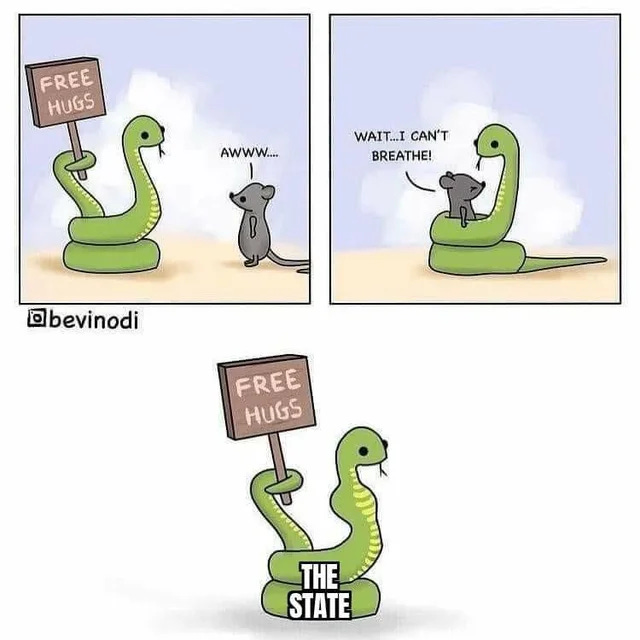
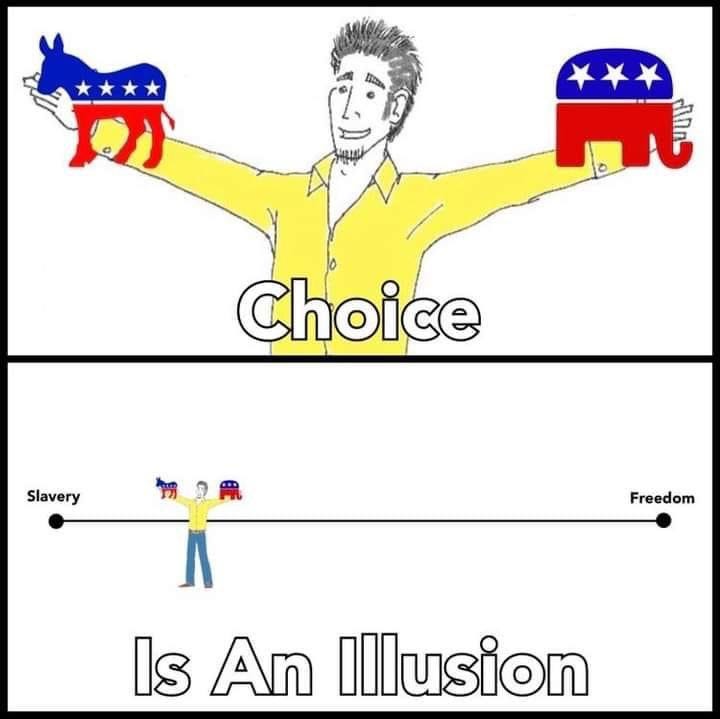

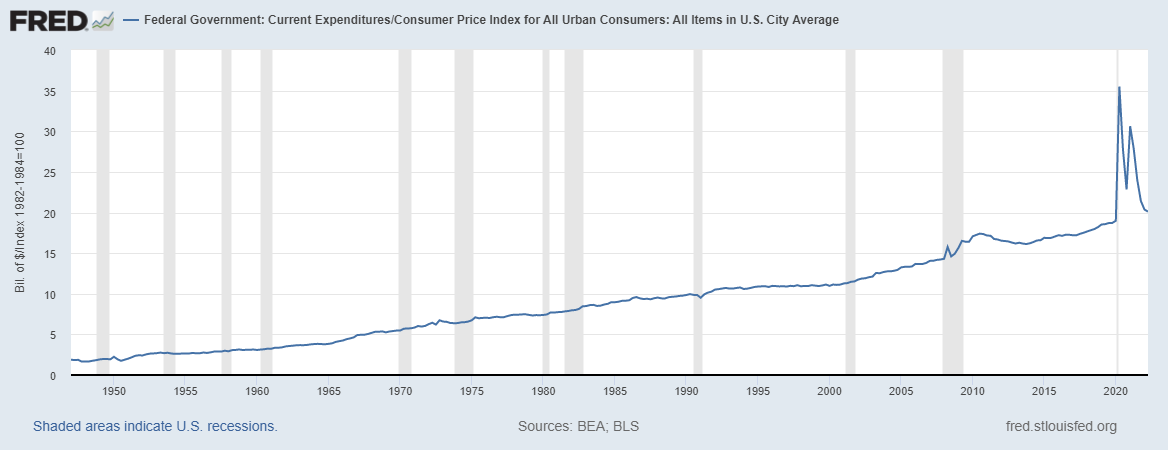
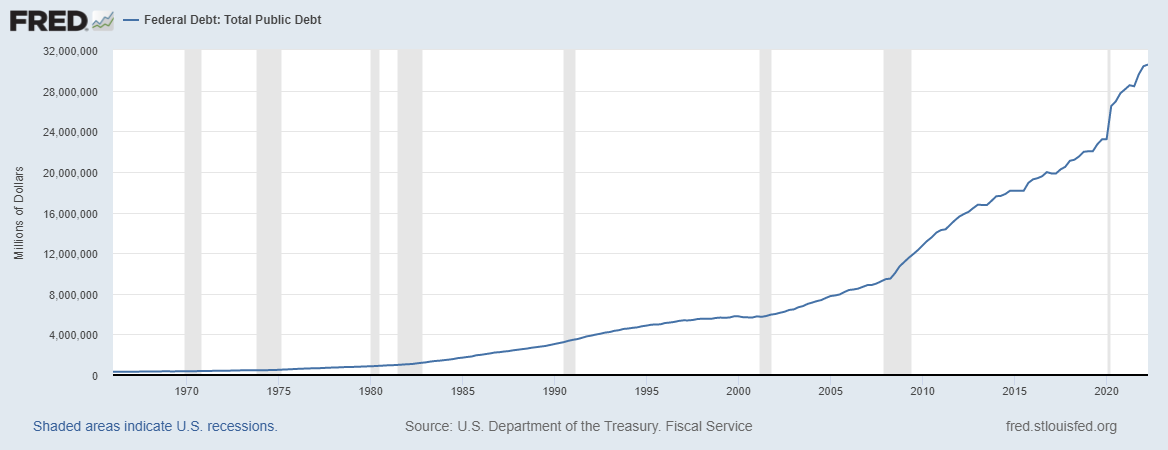
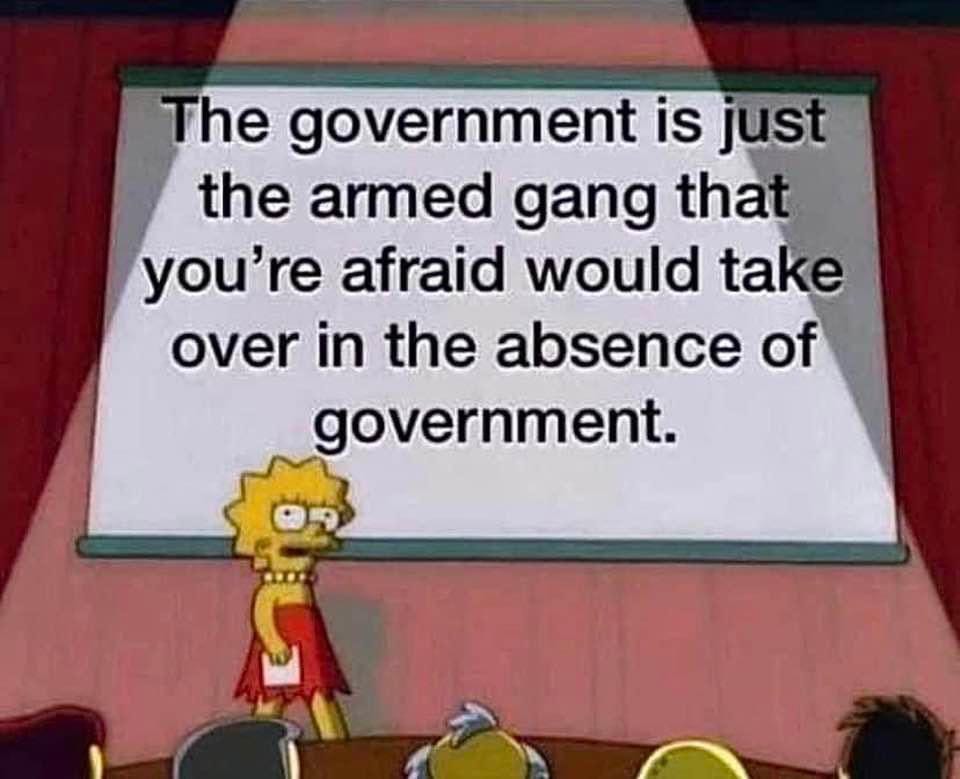
Comments
Post a Comment